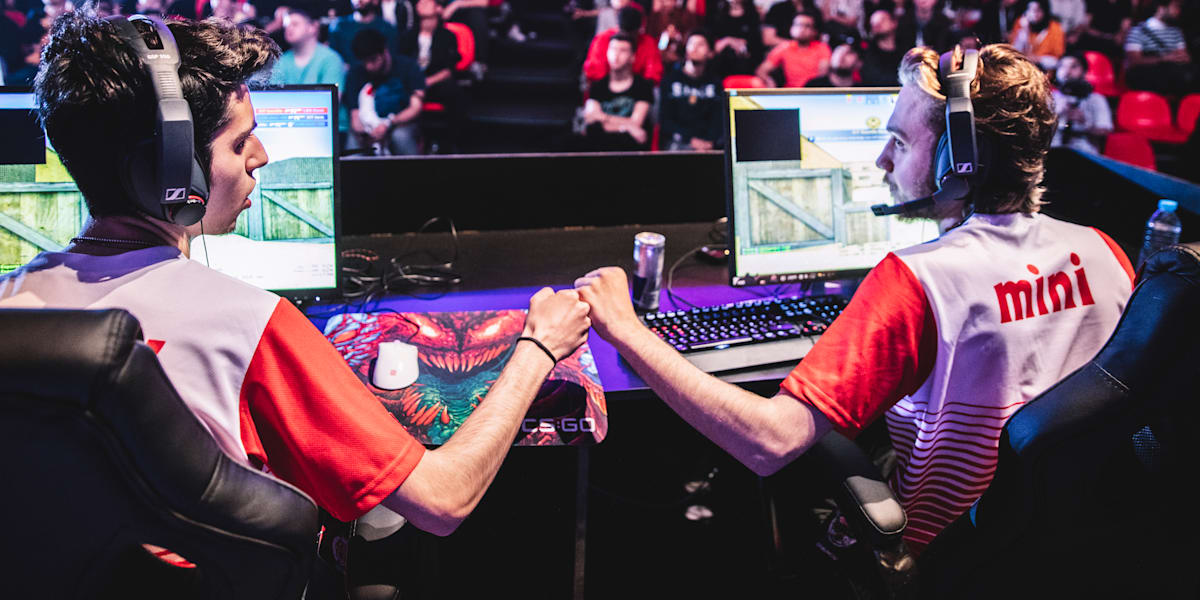Asik Cloud Insights
Your gateway to the latest trends in technology, cloud computing, and digital innovation.
CSGO Esports: Where the Real Drama Unfolds Beyond the Matches
Dive into the thrilling world of CSGO esports, where the real stories, rivalries, and drama unfold beyond the matches! Don't miss out!
The Untold Stories: Behind the Scenes of CSGO Esports Rivalries
In the world of CSGO esports rivalries, what happens behind the scenes often shapes the narrative of each competition. From intense training sessions to strategic planning meetings, teams invest countless hours preparing for their rivals. For instance, Team A and Team B have built a fierce rivalry over the years, marked by emotional highs and lows. Players have shared stories of late-night scrims where the atmosphere was so charged that it felt like they were in an actual tournament. These mini-battles help them not only to sharpen their skills but also to develop a psychological edge that can make a significant difference in high-stakes matches.
Meanwhile, the fan culture surrounding these rivalries adds another layer of intensity. Fans often create elaborate chants and memes, fueling the competitive spirit on social media platforms. A recent study showed that the viewership spikes during critical matches between arch-rivals can be traced back to the passionate narratives that fans share online. As we delve deeper into the untold stories behind these iconic clashes, it becomes clear that it's not just a game; it’s a complex mosaic of emotions, strategies, and the relentless pursuit of glory.

Counter-Strike is a popular tactical first-person shooter game that has captured the attention of gamers worldwide. One of the most frequently asked questions among the community is is Counter-Strike 2 cross platform, as players seek to understand the multiplayer capabilities of the latest iteration in this iconic series.
The Evolution of CSGO Esports: Key Moments That Changed the Game
Counter-Strike: Global Offensive (CSGO) has undergone a remarkable transformation since its launch in 2012, evolving into one of the most prominent esports titles in the world. One of the key moments that shaped the trajectory of CSGO esports was the introduction of the Major Championships in 2013. These prestigious tournaments not only elevated the game's status but also attracted substantial investment from sponsors and viewership across various platforms. The first major, DreamHack Winter, laid the foundation for future events, showcasing top-tier talent and setting the stage for a competitive environment that continues to thrive today.
Another pivotal moment in the history of CSGO esports was the rise of streaming platforms like Twitch. The ability for fans to watch their favorite players and teams live contributed significantly to the game's popularity, helping to create a vibrant community of viewers and aspiring professionals. Major content creators took advantage of this platform to provide insights, tutorials, and gameplay streams, thus enhancing the overall engagement with the game. As a result, CSGO not only cemented its place in the esports landscape but also inspired a whole new generation of gamers eager to compete at the highest levels.
Is CSGO Esports Drama More Entertaining Than the Matches Themselves?
The world of CSGO esports drama has become a captivating aspect of the community, often overshadowing the matches themselves. With controversies arising from team betrayals, player disputes, and social media altercations, some fans find themselves more entertained by these narratives than the actual gameplay. As matches unfold, the backdrop of drama can add layers to the spectator experience; an exciting clash is only heightened by knowing the heated history between teams and players. The question emerges: does this drama make the actual competitive events less important, or does it simply enhance the overall experience for fans?
Moreover, the constant influx of drama in CSGO tends to ignite passionate discussions among fans across various platforms. Many avid followers find themselves analyzing tweets, clips, and interviews to piece together intricate stories that highlight human emotions within the esports scene. This phenomenon is reminiscent of traditional sports, where rivalries and off-the-field antics command just as much attention as the games themselves. In this digital age, where content consumption is rapid, the pursuits of players and the drama surrounding them may just be what keeps the audience engaged, blurring the lines between the game and the gossip.